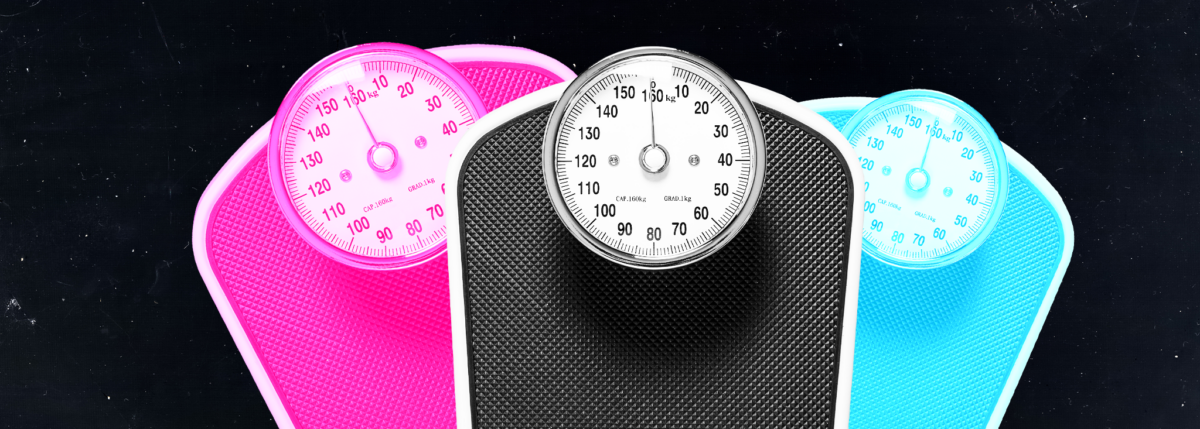Why Is Weight Management Important If You Have Kidney Disease?
If you aren’t at your ideal weight and live with chronic kidney disease, weight management is of the essence.
Obesity accounts for approximately 20%–25% of kidney disease worldwide.
The true number is far higher when you include intermediate-disease states like:
- Type 2 diabetes—which is the most common global cause of chronic kidney disease—and
- High blood pressure—which is the second-most-common cause.
In fact, having diabetes and hypertension explains most obesity-associated kidney risk. Furthermore:
- People from low-income communities are more likely to be living with obesity, and
- People who had lower income for the past 5 years had a 22% elevated type 2 diabetes risk—compared with those who never had low income.
Effective treatment of diabetes and hypertension can prevent or delay kidney failure.
However, people with lower incomes are more likely to forgo necessary care because of financial barriers.
In this article we will discuss:
- What Are the Benefits of Weight Management with Kidney Disease?
- What Should You Eat if You Have Challenges with Weight Management and Kidney Health?
- How Should You Exercise if You Aren’t At Your Ideal, and Have Kidney Problems and Type 2 Diabetes?
- How Can Medications Aid in My Weight Management if I Have Kidney Disease?
- What are Some other ways to Preserve Kidney Function?
What Are the Benefits of Weight Management with Kidney Disease?
The not-so-good news is that obesity increases your lifetime risk of chronic kidney disease by up to 25%.
If you have kidney disease and want to lower your weight, the good news is that losing weight can lower your heart attack or stroke risk—and preserve your kidney function.
If you have type 2 diabetes, losing just 5 percent of your weight can improve your blood sugar.
Losing weight can also:
- Help your body use its own insulin better.
- Reduce your need for medicine to treat your diabetes.
- Improve your cholesterol.
- Reduce your risk for heart disease.
- Lower your blood pressure.
- Maintaining a healthy weight has many benefits, including increased energy and fewer health complications.
Losing weight can also reduce your risk of type 2 diabetes and high blood pressure, which—to reiterate—can be a “one-two punch” to your obesity-associated kidney risk.
Maintaining high glucose levels can damage blood vessels in the kidneys that filter waste from the blood. This can lead to kidney damage and cause high blood pressure.
If you also have type 2 diabetes, losing weight has also been shown to improve your body’s use of insulin—helping manage your blood-sugar levels.
What Should You Eat if You Have Challenges with Weight Management and Kidney Health?
Diet, physical activity and behavioral therapy are what the American Diabetes Association recommends to achieve and maintain 5% (or greater) weight loss for most people with type 2 diabetes who are at a higher weight.
However, to achieve weight loss or management goals, what types of eating habits should a person with kidney disease have?
If you are an overweight person with type 2 diabetes and also have kidney disease, following a kidney diet may vary based on your stage of kidney disease
- In the early-stages of chronic kidney disease, blood-pressure and sugar management are important to decrease kidney damage.
- In later stages, a lower-protein diet may help reduce the kidneys’ workload and decrease the build-up of waste (e.g. blood urea nitrogen, and creatinine in the blood).
What Foods Are Beneficial If You Are at a Higher Weight and Have Kidney Disease?
The American Diabetes Association makes the following dietary recommendations for overweight people living with kidney disease:
Berries— Powerful antioxidants that fight free radicals
Cabbage—Fibrous and rich in vitamins A, C and B6, as well as folic acid
Red Bell Peppers— Vitamins A, C and B6, as well as folic acid
Omega 3 Fatty Fish—Herring, mackerel, salmon, albacore tuna, and rainbow trout
What Foods Should Be Limited If You’re at a Higher Weight and Have Kidney Disease?
High-phosphorus Foods and Additives—Brown rice, peas, dairy products, nuts and seeds
High-potassium Foods—Bananas, peas, tomatoes, dry beans and bran cereals
Beverages and Phosphate Additives—Dark colas and certain iced teas
Is Sodium Bad for People on a Kidney Diet?
The Cleveland Clinic adds that sodium should also be managed in people following a kidney diet.
Sodium is a mineral found in salt (sodium chloride), and widely used to prepare foods.
Reducing salt/sodium is an important tool in managing your kidney disease. You can reduce sodium intake by:
- Not using salt when cooking food.
- Not putting salt on food when you eat.
- Learning to read food labels.
- Avoid foods that have more than 300-mg sodium per serving (or 600mg for a complete frozen dinner).
- Avoid foods that have salt in the first four or five items in the ingredient list.
- Not eating ham, bacon, sausage, hot dogs, lunch meats, chicken tenders or nuggets, or regular canned soup.
- Only eat reduced-sodium soups that don’t have potassium chloride as an ingredient (check the food label).
- Also, only eat 1 cup—not the whole can.
- Choosing only canned vegetables that say “no salt added” on the label.
- Avoiding flavored salts such as garlic salt, onion salt, or seasoned salt.
- Avoiding kosher or sea salt.
- Not purchasing refrigerated or frozen meats that are packaged in a solution or those that have been flavored or pre-seasoned.
- These items can include:
- Boneless chicken and bone-in chicken pieces
- Turkey breast
- Whole turkeys
- Steaks
- Roasts
- Burgers
- Pork tenderloin, and
- Pork chops.
- These items can include:
Note: A registered dietitian can help create an eating plan for you based on these factors.
How Should You Exercise if You Are at a Higher Weight, and Have Kidney Problems and Type 2 Diabetes?
Most weight loss occurs from decreasing caloric intake.
However, increased physical activity burns more calories. Therefore, in addition to following a kidney diet, expending energy through exercise is another way to help lose weight.
People with advanced kidney disease who frequently exercised had about a 50% lower mortality rate than those who didn’t.
Furthermore, people who regularly exercise can:
- Maintain a healthy weight to prevent or slow diabetes
- Control blood pressure and cholesterol levels
- Build strength and prevent injuries
- Reduce stress and improve mood
The National Kidney Foundation recommends the following movement exercises for weight loss in people with kidney disease:
Walking: Get a decent pair of tennis shoes, and you’re set. To make it more fun, create a walking group with friends or walk to the beat of your favorite music.
Hiking: Hit the trails for a relaxing workout in the serenity of nature.
Biking: If you have a bike, now is the time to get it out. It’s an excellent low-impact way to exercise your major muscle groups at the same time.
Community activities: Many community centers offer free or low-cost community-based programs like yoga, baseball, tennis, swimming, and more!
Before starting an exercise routine, speak with an exercise specialist or your kidney doctor. They can help you develop a plan to reach your ideal weight and take control of your diet and health.
Stay Informed
Learn as much as can about kidney disease, tools and resources,
To find a no-cost Kidney Smart class, check out https://www.davita.com/ada-partnership.





